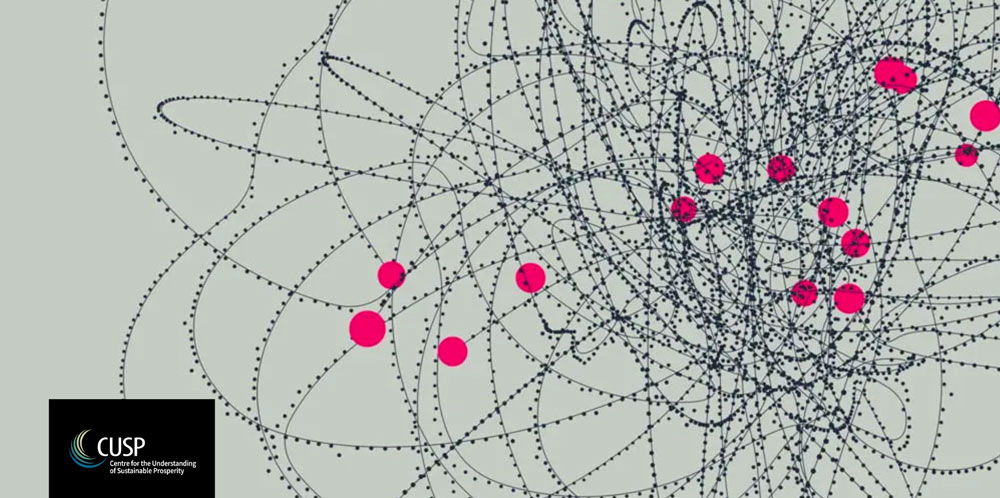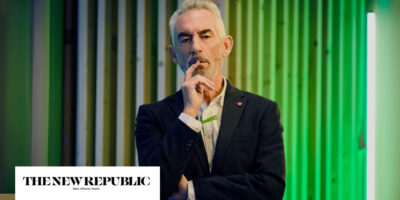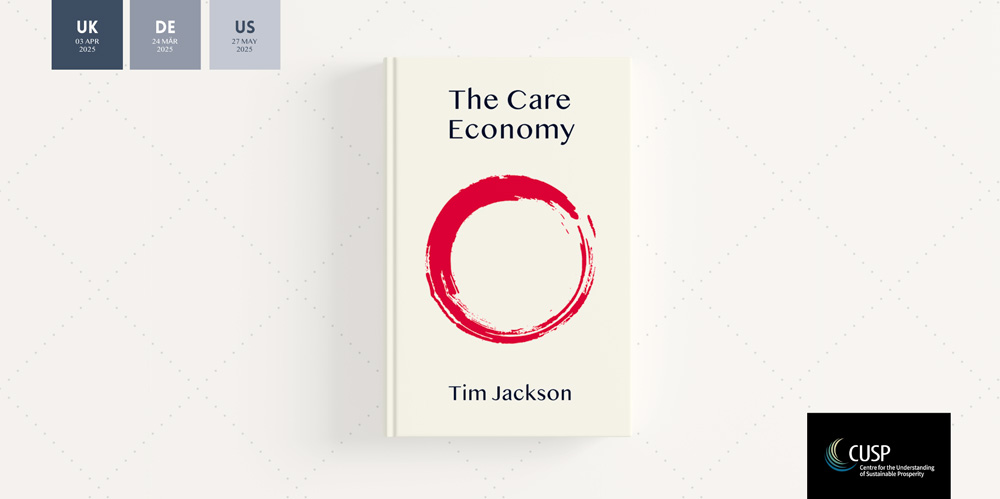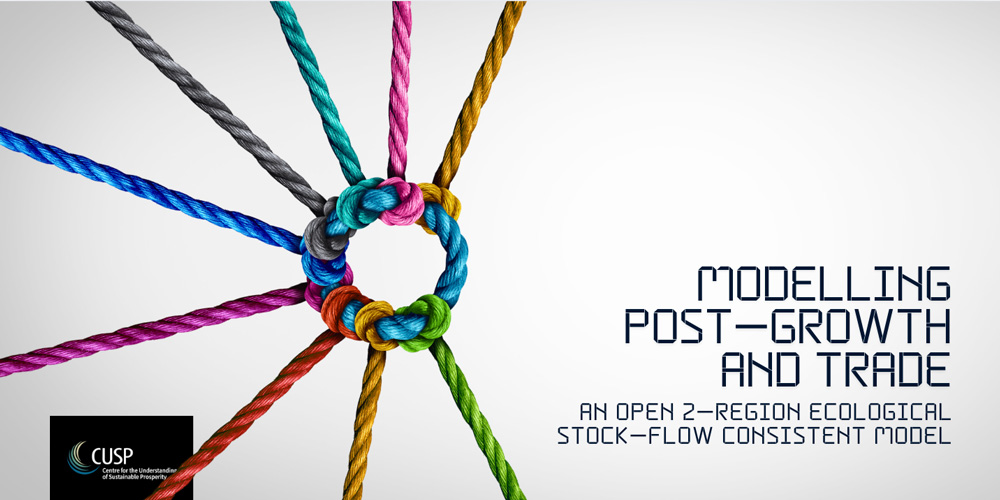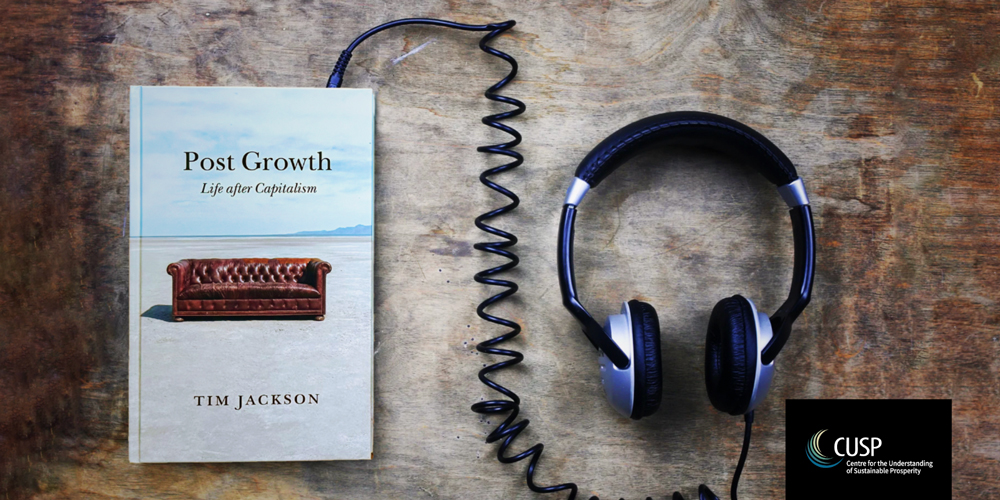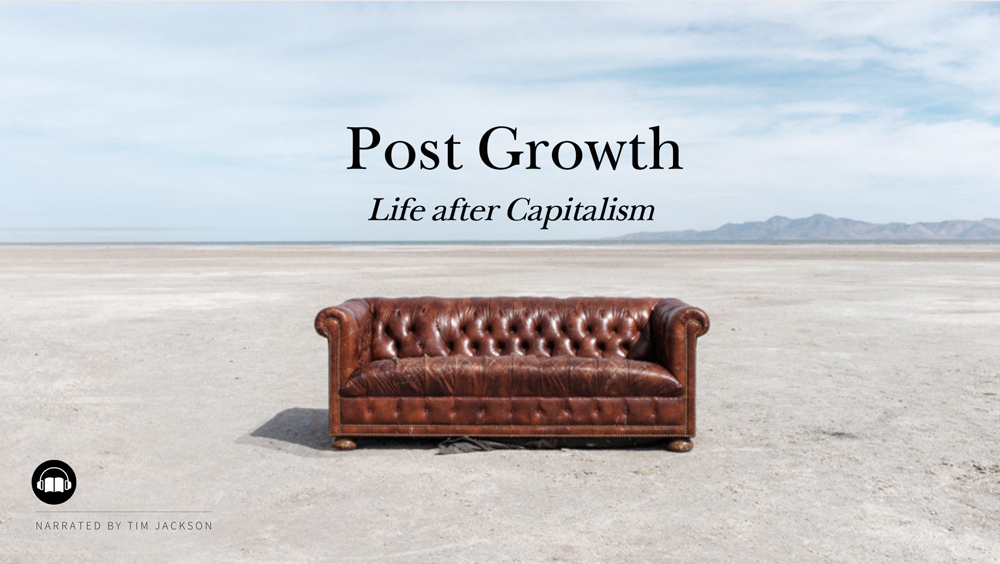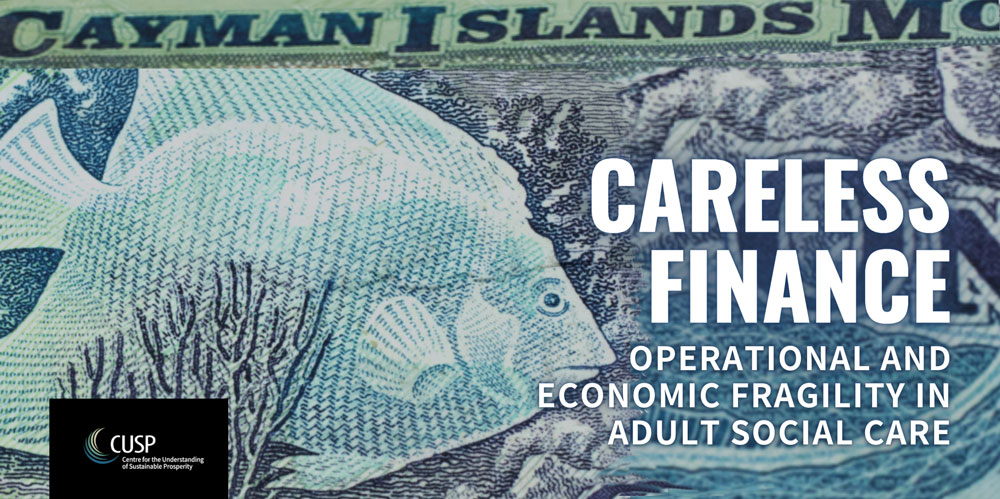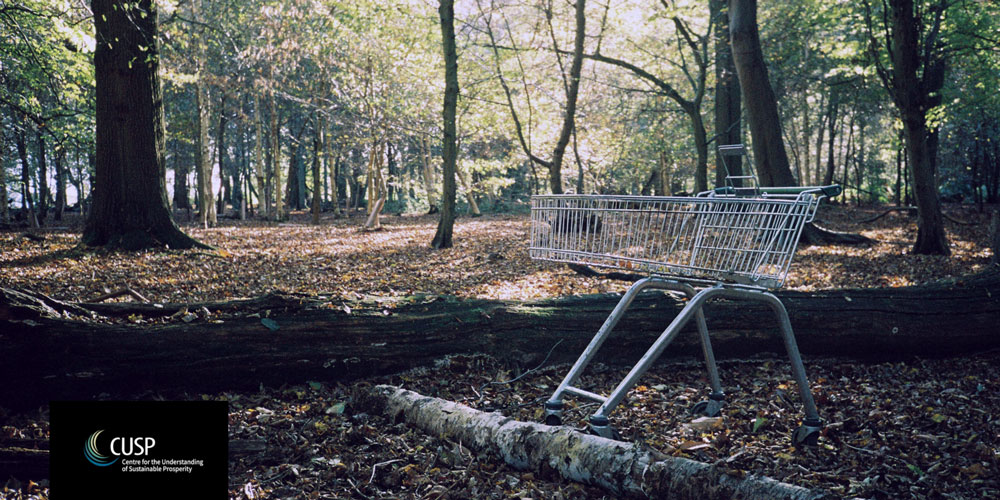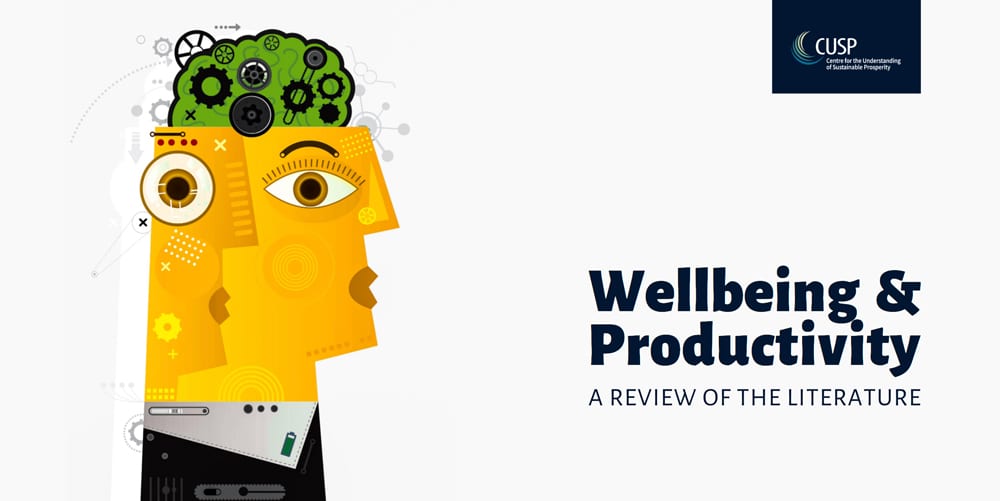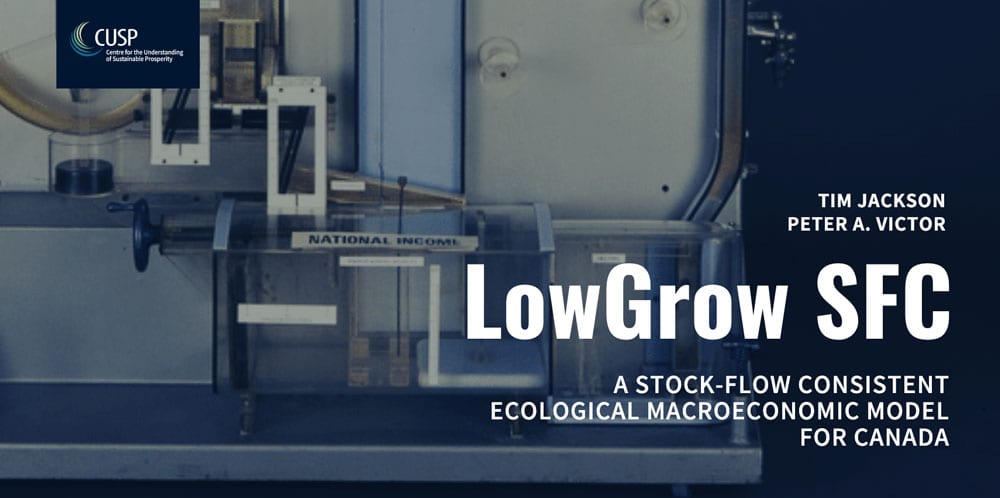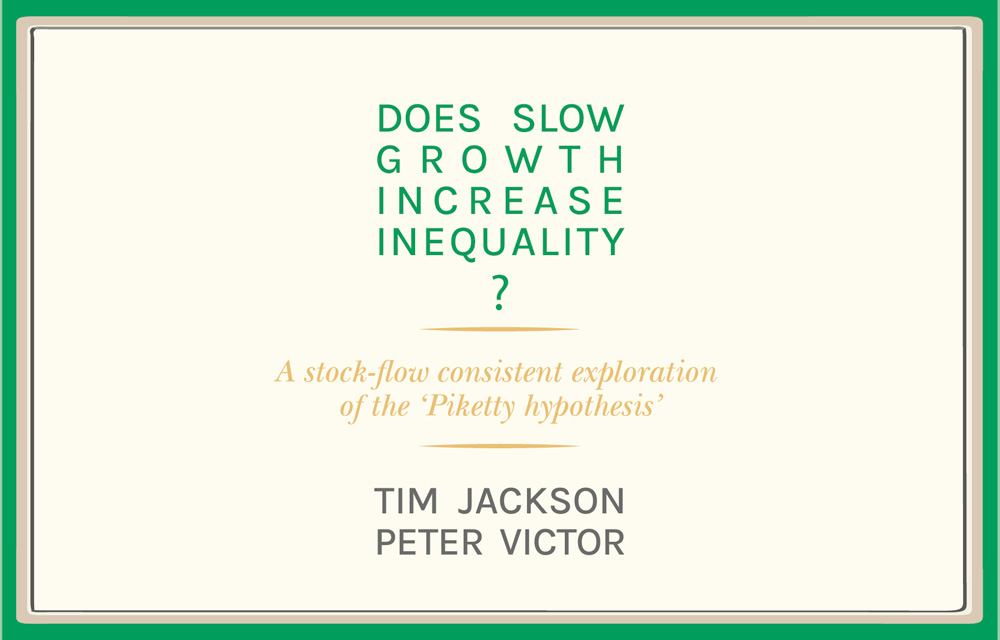THEMES / ECONOMY
Building an Economy That Works
At the heart of Prosperity without Growth is the call for a new understanding of the dynamics of the modern economy that can also incorporate the reality of ecological and resource constraints. A critical challenge for this new approach is the need to ensure economic and social stability even as relentless growth in consumer demand is attenuated. We are addressing the ‘Postgrowth Challenge‘ throughout our work programme.

Summary
Our conceptual basis is informed in particular by our system dynamics work. We are engaging with a variety of stakeholders in business and parliament, to help developing strategies for an economy that works for everyone.
In affiliation with the All-Party Parliamentary Group on Limits to Growth, and chaired by Caroline Lucas MP, we are developing a series of Private Breakfast Briefings in Parliament to address the demands facing the UK economy at a pivotal time in our history and to provide a forum for discussion on the challenge of Building an Economy That Works—for everyone.
Policy Briefings
Ten years after the financial crisis, sluggish growth, faltering labour productivity and persistent inequalities are creating huge uncertainties for the future of advanced economies such as the UK. Under these conditions, it is challenging to meet the investment needs associated with improving people’s health and wellbeing or to honour our obligations under the Paris Agreement on climate change.
The implications for social and political instability are profound. Is a return to high levels of GDP growth the only way to meet these combined challenges? Is such a return even possible? A series of briefing papers from the All-Party Parliamentary Group on the Limits to Growth aims to explore these questions and to create the space for a vital conversation aimed at building An Economy That Works – for everyone.
Blog posts
A Roundtable for Businesses
Business will not be successful in an economy that doesn’t work. Low productivity undermines competitiveness now, carbon intensity may undermine it in the future, and inequality and associated social tensions create instability, making Britain a potentially unattractive, risky place to do business. Collaborating with an alliance of businesses and civil society organisations, CUSP is hosting Business Roundtables, working to promoting long term, structural changes needed to achieve a sustainable economy. A list of recent roundtables—and subsequent reports—can be accessed below.
Publications
Forthcoming book by CUSP director Prof Tim Jackson, exploring the concept of care in the economy, its undervaluation in markets, and its profound importance for health and society. Dive into the history of medicine, capitalism’s impact on health, and the gender politics of care. Irreverent, insightful and profoundly inquisitive, The Care Economy offers a bold and accessible manifesto for a healthier and more humane society.
This working paper by Dario Leoni, Andrew Jackson and Tim Jackson describes the post-Keynesian SFC PADME Model which explores two regional economies linked by international trade and financial flows, each made up of seven sectors. The theoretical framework underpinning the model is that of ecological economics.
A comprehensive new review by leading experts in the sustainability science field is challenging the long-held assumption that economic growth is necessary for societal progress. Published in The Lancet Planetary Health, this paper explores the rapidly advancing field of postgrowth research and presents a compelling case for prioritising human wellbeing and ecological sustainability over endless economic expansion.
This commentary responds to a recent article purporting to identify ‘limits to degrowth’. This paper clarifies and sets in context the tensions between growth rates and decoupling rates on which the contested argument is based, disputing the claim that growth is the best way to achieve high rates of decoupling.
Modern economies rely on economic growth for stability and prosperity, but this dependence is ecologically unsustainable. Understanding growth dependency is crucial. We propose a sector-led framework to transform these reliances and disrupt their inevitability.
We are pleased to announce the release of the audiobook edition of Tim Jackson’s prize-winning book “Post Growth—Life After Capitalism”. Through his own narration, Tim brings a personal touch to the profound themes of Post Growth, offering an accessible and engaging experience for audiences to absorb his insights on the go.
This working paper describes a two-region post-Keynesian stock-flow consistent macroeconomic model set out to analyse macroeconomic implications of a postgrowth transition in advanced countries on the economic and environmental conditions in the rest of the world.
This working paper describes an extension of the stock-flow consistent FALSTAFF model to test the existence of a monetary growth imperative. The extension is designed to simulate the phenomenon known as Baumol’s cost disease which arises from the existence of differential labour productivity rates in a mixed economy.
Wealthy countries can create prosperity while using less materials and energy if they abandon economic growth as an objective. This Nature comment piece is laying out the key challenges.
Through a series of in-depth interviews with care workers Christine Corlet Walker et al explore the impact of investment firms on working conditions and quality of care in UK care homes. Combined with an analysis of care company accounts generating insights into the impacts of financialisation on the UK care sector, the report shows how investment firms are using extreme strategies to reduce staffing levels and cut costs in the name of profit, with appalling consequences for care.
Long-term care systems across countries within the OECD have undergone a progressive marketisation and financialisation in recent decades. In this Personal View, we argue that the accomapnying neoliberal market values make poor guiding principles for the care sector, identifying the dysfunctional dynamics that arise as a result, and reflecting on the clinical implications of each, with a focus on facility-based care.
In the years since the financial crisis, a heated debate has broken out amongst macroeconomists about the appropriate roles of fiscal and monetary policy in managing public sector debt. This working paper and accompanying policy briefing introduce the main lines of argument on both sides of the controversy. We find i.a. that a return to fiscal austerity would be both dangerous and unjustified and that moving beyond ideology is key to the levelling-up agenda.
This paper presents a systematic approach to identifying, analysing and transforming growth dependencies in the welfare state. Using adult social care as our case study, we explore how growing demand, rising costs and rent seeking can create growth dependencies. We analyse the structures that drive and reinforce these growth dependencies and, in so doing, we identify fruitful levers for transformation and mitigation.
A new joined-up post-Covid biodiversity policy paper argues that addressing biodiversity loss requires a transformative change of the global economic system, and concludes that the COVID‐19 pandemic, and current delays in the negotiation of the post‐2020 global biodiversity agenda of the Convention on Biological Diversity heighten the urgency to build back better for biodiversity, sustainability, and well‐being.
Post‐pandemic recovery must address the systemic inequality that has been revealed by the coronavirus crisis. The roots of this inequality predate the pandemic and even the global financial crisis. They lie rather in the uneasy relationship between labor and capital under conditions of declining economic growth.
Welfare systems across the OECD face many combined challenges, with rising inequality, demographic changes and environmental crises likely to drive up welfare demand in the coming decades. Economic growth is no longer a sustainable solution to these problems. It is therefore imperative that we consider how welfare systems will cope with these challenges in the absence of economic growth. We review the literature tackling this complex problem.
Capitalism is broken. The relentless pursuit of more has delivered climate catastrophe, social inequality and financial instability—and left us ill prepared for life in a global pandemic. Weaving together philosophical reflection, economic insight and social vision, Tim Jackson’s passionate and provocative book dares us to imagine a world beyond capitalism—a place where relationship and meaning take precedence over profits and power. Post Growth is both a manifesto for system change and an invitation to rekindle a deeper conversation about the nature of the human condition.
Adult social care across the OECD is in crisis. Covid-19 has exposed deep fragilities. Principal amongst these is the process of marketisation and financialisation of the social care sector. In this paper, we take a critical perspective on this process. We find that marketisation has facilitated the conditions for both financial fragility and operational failure; and argue that post-pandemic recovery represents a once-in-a-generation opportunity to overhaul these conditions and transform adult social care.
Labour productivity is a key concept for understanding the way modern economies use resources and features prominently in ecological economics. Ecological economists have questioned the desirability of labour productivity growth on both environmental and social grounds. In this paper we aim to contribute to ongoing debates by focusing on the link between labour productivity and worker wellbeing.
This working paper summarises the initial findings of a project whose aim has been to develop an agent-based (AB), stock-flow-consistent (SFC) macroeconomic framework to study the economic, financial and social implications of the transition to a net zero carbon economy.
The COVID-19 pandemic has caused dramatic and unprecedented impacts on both global health and economies. Many governments are now proposing recovery packages to get back to normal, but the 2019 Intergovernmental Science-Policy Platform for Biodiversity and Ecosystem Services Global Assessment indicated that business as usual has created widespread ecosystem degradation. Therefore, a post-COVID world needs to tackle the economic drivers that create ecological disruptions.
This paper presents a stock-flow consistent (SFC) macroeconomic simulation model for Canada. Contrary to the widely accepted view, the results suggest that ‘green growth’ (in the Carbon Reduction Scenario) may be slower than ‘brown growth’. More importantly, we show (in the Sustainable Prosperity Scenario) that improved environmental and social outcomes are possible even as the growth rate declines to zero.
Global economic stability could be difficult to recover in the wake of the Covid-19, this Nature article finds. Even before the Covid-19 crisis, many of the world’s leading economies were experiencing larger slower growth cycles (recession cycles), suggesting precisely such a period of critical slowing down in the economic system. This analysis suggests that the added weight of the Covid-19 crisis may result in one of the weakest and most unstable recoveries in recorded history for many economies.
In this paper, we aim to contribute to the literature on post-growth futures. Modern imaginings of the future are constrained by the assumptions of growth-based capitalism. To escape these assumptions we turn to utopian fiction.
This report reviews the relationships between the different aspects of wellbeing, productivity, and productivity growth. It is the culmination of a desk-based evidence review, survey, and a mapping workshop held with experts from backgrounds including psychology, sociology, economics, and design. The focus is on wellbeing and labour productivity.
It is clear that the larger the economy becomes, the more difficult it is to decouple that growth from its material impacts… This isn’t to suggest that decoupling itself is either unnecessary or impossible. On the contrary, decoupling well-being from material throughput is vital if societies are to deliver a more sustainable prosperity—for people and for the planet. (This article is posted on the Science website).
This working paper presents a stock-flow consistent (SFC) simulation model of a national economy, calibrated on the basis of Canadian data. LowGrow SFC describes the evolution of the Canadian economy in terms of six financial sectors whose behaviour is based on ‘stylised facts’ in the Post-Keynesian tradition. Contrary to the accepted wisdom, the results indicate the feasibility of improved environmental and social outcomes, even as the growth rate declines to zero.
Robert Shiller’s new book probes how social behaviour trumps statistics in determining the fate of economies—Tim Jackson weighs it up. (This article is posted on the Nature website).
Since its development in the 1930s, GDP has been the most widely used measure of the health and progress of an economy, being adopted as the principal policy objective of countless national and international bodies across the world. Its many shortcomings as a measure of progress are well documented, and the alternative indicators of progress developed in response to these shortcomings have been diverse and numerous. This paper synthesises the literature, highlighting the importance of context and purpose in determining what makes a ‘good’ indicator.
This briefing paper summarises the dilemma associated with using mainstream, macroeconomic models to guide disruptive, transformative change such as those that might occur under ‘deep decarbonisation’: a rapid transition to a net-zero carbon economy. Some form of macro-economic modelling framework is essential to enable policy-makers to exercise short- and long-term fiscal responsibility. Incremental models based on historical behaviour, however, are a poor guide to outcomes under circumstances of disruptive change.
CUSP briefing addressing the question of when the UK should aim for zero carbon emissions. In it, Prof Tim Jackson is making the case for a (fair) zero carbon target of 2030, calling for a policy strategy not only on zero carbon targets, but emission pathways, with a defined level of negative emission technologies. It is notable that reduction rates high enough both to lead to zero carbon (on a consumption basis) by 2050 and to remain within the carbon budget require absolute reductions of more than 95% of carbon emissions as early as 2030.
Revised second edition of Peter Victor’s influential book. Human economies are overwhelming the regenerative capacity of the planet, this book explains why long-term economic growth is infeasible, and why, especially in advanced economies, it is also undesirable. Simulations developed with Tim Jackson, show that managing without growth is a better alternative.
Sluggish recovery in the wake of the financial crisis has revived discussion of a ‘secular stagnation’. These conditions have been blamed for rising inequality and political instability. Tim Jackson contests this view, pointing instead to a steadfast refusal to address the ‘post-growth challenge’.
Tim Jackson’s chapter in The Cambridge Handbook of Psychology and Economic Behaviour has been updated for the second edition of the international, multi-disciplinary and partly new collection, edited by Alan Lewis. It summarises the challenge inherent in recent policy debates about sustainable consumption, focusing in particular on what might be involved in negotiating the kinds of lifestyle changes that are implied by the radical reductions in carbon emissions that are required to mitigate climate change.
Piketty argued that slow growth rates inevitably lead to rising inequality. If true, this hypothesis would pose serious challenges for a ‘post-growth’ society. Fiscal responses to this dilemma include Piketty’s own suggestion to tax capital assets and more recent suggestions to provide a universal basic income that would allow even the poorest in society to meet basic needs.
The publication of Prosperity without Growth was a landmark in the sustainability debate. This substantially revised and re-written edition updates its arguments and considerably expands upon them. Tim Jackson demonstrates that building a ‘post-growth’ economy is not Utopia—it’s a precise, definable and meaningful task. It’s about taking simple steps towards an economics fit for purpose.
This paper explores the ramifications of the combined crises now faced by the prevailing growth-based model of economics. In paying a particular attention to the nature of enterprise, the quality of work, the structure of investment and the role of money, the paper develops the conceptual basis for social innovation in each of these areas, and provides empirical examples of such innovations.
The SIGMA model explores the hypothesis that slow growth rates lead to rising inequality. Contrary to the general hypothesis, the work finds that inequality does not necessarily increase as growth slows down. In fact, there are certain conditions under which inequality can be ameliorated significantly, or even entirely eliminated, as growth declines.
This paper addresses the question of whether a capitalist economy can ever sustain a ‘stationary’ (or non-growing) state, or whether, as often claimed, capitalism has an inherent ‘growth imperative’ arising from the charging of interest on debt. Contrary to claims in the literature, we find that neither credit creation nor the charging of interest on debt creates a ‘growth imperative’ in and of themselves.







